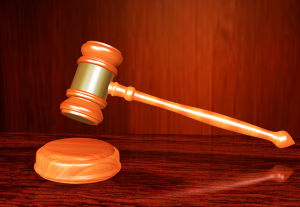 Last Friday evening the Chief Judge of Maryland’s highest court issued an updated administrative order, which established a plan to reopen state courthouses this summer. The previous order stated that the courts would be closed to the public through Friday June 5, but offered little guidance to how the courts would reopen that following Monday. It was no surprise that a more comprehensive order would be forthcoming, and the only thing left in doubt was the timing. Reopening in so called “phases” has become a sign of the times, and the courts are adopting this approach moving forward. There will five phases according to the order, and they will gradually go into effect over the course of the next five months.
Last Friday evening the Chief Judge of Maryland’s highest court issued an updated administrative order, which established a plan to reopen state courthouses this summer. The previous order stated that the courts would be closed to the public through Friday June 5, but offered little guidance to how the courts would reopen that following Monday. It was no surprise that a more comprehensive order would be forthcoming, and the only thing left in doubt was the timing. Reopening in so called “phases” has become a sign of the times, and the courts are adopting this approach moving forward. There will five phases according to the order, and they will gradually go into effect over the course of the next five months.
According to the order we will be in phase 1 until Friday June 5 at the close of business. Phase 1 has been officially in effect since March 16, which seems like ages ago. With respect to criminal cases, both the circuit and district courts of Maryland have been closed except for emergency hearings such as bail reviews, habeas corpus motions and emergency evaluation petitions. Domestic violence protective orders and peace orders have been heard by district court commissioners, but there have been no final evidentiary hearings set in front of judges. Phase 2 will begin at the close of business on June 5, and last through July 19. Courts will still be closed to the public during phase 2, but the circuit courts will begin to hear guilty pleas and deferred sentencing matters, so defendants will be permitted inside the courts. It does not appear that the courts will hear any pleas that may result in a defendant being sentenced to immediate incarceration during phase 2. The juvenile courts will still operate more or less on an emergency basis, and will not hear reverse waivers or dispositions that require testimony. The district courts will begin to hear guilty pleas in phase 2 with no incarceration or deferred incarceration, and also preliminary hearings with agreed resolutions. The overall theme of phase 2 is beginning to move cases that do not require witness testimony or that will result in immediate incarceration.
Monday July 20 appears to be a big day in the Maryland court system, as phase 3 will begin and the courthouses and the clerk’s offices will officially be open to the public. They courts are still working on exact guidelines to limit capacity and promote social distancing, so it won’t simply be a free for all at 8:30 on the 20th. The circuit courts will begin to hear cases with witness testimony including bench trials, pleas, violation of probation hearings, evidentiary motions and jury trial prayer status conferences. The juvenile courts will begin to hear waiver hearings, dispositions and adjudications, and the district court will be permitted to conduct trials for incarcerated defendants and defendants facing DUI charges and charges involving violent acts such as assault in the second degree. Phase 4 will begin on August 31, and mark the beginning of the minor traffic dockets in district court, as well as all other non-jury trials. Things are scheduled to completely return to normal on October 5, when phase 5 begins and the circuit court resumes jury trials.
 Criminal Defense Lawyer Blog
Criminal Defense Lawyer Blog


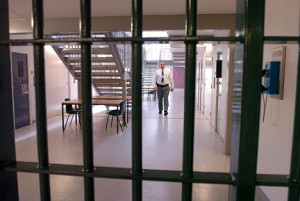
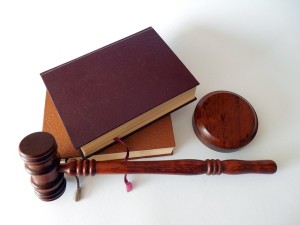
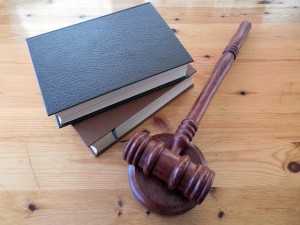
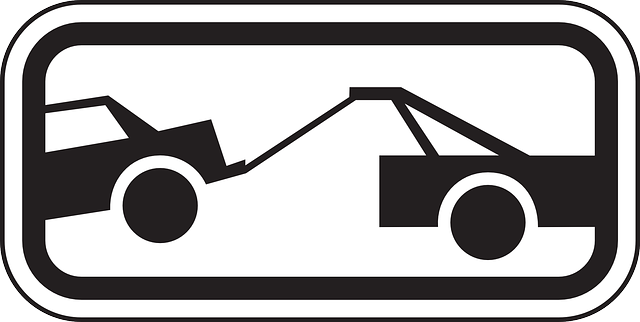 It almost seems like a crime in and of itself. A police officer arrests a person for suspicion of committing a drug offense. Then a few hours (hopefully not longer) later upon being released he or she finds out that the police have kept some of their property. Property that is entirely legal on its own. Typically it’s something small like a few bucks or a cell phone. But in some cases it could be thousands of dollars, a car, boat, or even a house. Time and time again the courts have upheld law enforcement’s right to confiscate a suspect’s property. It is widely understood, if not accepted, that a cop can take a person’s otherwise legal property if that officer believes it will be evidence in a criminal prosecution. Unfortunately this is hardly the only justification an officer needs to take a citizen’s stuff. For decades the law of civil forfeiture has driven defendant’s, their families, and criminal defense lawyers crazy. In a nutshell forfeiture gives police the right to confiscate property they believe is being used to further criminal activity. The definition is vague and general, and the standard of proof is low. Forfeiture is easily abused by law enforcement, and when it is, legally thievery is the result.
It almost seems like a crime in and of itself. A police officer arrests a person for suspicion of committing a drug offense. Then a few hours (hopefully not longer) later upon being released he or she finds out that the police have kept some of their property. Property that is entirely legal on its own. Typically it’s something small like a few bucks or a cell phone. But in some cases it could be thousands of dollars, a car, boat, or even a house. Time and time again the courts have upheld law enforcement’s right to confiscate a suspect’s property. It is widely understood, if not accepted, that a cop can take a person’s otherwise legal property if that officer believes it will be evidence in a criminal prosecution. Unfortunately this is hardly the only justification an officer needs to take a citizen’s stuff. For decades the law of civil forfeiture has driven defendant’s, their families, and criminal defense lawyers crazy. In a nutshell forfeiture gives police the right to confiscate property they believe is being used to further criminal activity. The definition is vague and general, and the standard of proof is low. Forfeiture is easily abused by law enforcement, and when it is, legally thievery is the result. A few months back, the blog posted an article on a controversial Maryland law that allows police to sample and store DNA from any individual arrested for a violent crime or for burglary. Despite this law still being up on appeal, for the past few months state law enforcement agencies have continued to engage in this practice under the authority of a signed order from Chief Justice Roberts. The order did not overturn a decision by the state court of appeals, which declared the DNA law unconstitutional, but rather allowed DNA sampling to continue pending a final opinion by the country’s highest court. A decision on this controversial law is now expected in the coming months, as the Supreme Court recently heard arguments on the constitutionality police DNA sampling. The arguments were spirited to say the least, and at this early juncture there is no indication which way the majority appears to be leaning. But all justices are aware that this is could be a seminal opinion that could shape criminal procedure for the coming years. Justice Alito described it as the most important criminal procedure case in decades. He added that many murders and rapes could be solved using this technology, which involves a minimal intrusion on personal privacy, and asked why DNA sampling is not the fingerprinting of the 21st century. Whether these statements have tipped Alito’s hand remains to be seen, but there were is certainly some skepticism from the other justices about the law’s constitutionality.
A few months back, the blog posted an article on a controversial Maryland law that allows police to sample and store DNA from any individual arrested for a violent crime or for burglary. Despite this law still being up on appeal, for the past few months state law enforcement agencies have continued to engage in this practice under the authority of a signed order from Chief Justice Roberts. The order did not overturn a decision by the state court of appeals, which declared the DNA law unconstitutional, but rather allowed DNA sampling to continue pending a final opinion by the country’s highest court. A decision on this controversial law is now expected in the coming months, as the Supreme Court recently heard arguments on the constitutionality police DNA sampling. The arguments were spirited to say the least, and at this early juncture there is no indication which way the majority appears to be leaning. But all justices are aware that this is could be a seminal opinion that could shape criminal procedure for the coming years. Justice Alito described it as the most important criminal procedure case in decades. He added that many murders and rapes could be solved using this technology, which involves a minimal intrusion on personal privacy, and asked why DNA sampling is not the fingerprinting of the 21st century. Whether these statements have tipped Alito’s hand remains to be seen, but there were is certainly some skepticism from the other justices about the law’s constitutionality. A variety of new Maryland laws are set to go into effect on Monday, October 1st. Many of these new Maryland laws are part to the criminal justice system, most notably the Maryland marijuana possession law. After years of lobbying by marijuana legalization groups, the Maryland state legislature finally voted to change the state’s harsh marijuana possession laws. Starting on Monday, the maximum penalty for simple possession of marijuana will be lowered from 1 year in jail to 90 days in jail, and the maximum fine will be lowered from $1,000 to $500. Simple possession of marijuana is possession of less than 10 grams of the controlled substance. Pressure from pro marijuana lobbyist groups was not the only reason that the legislature and governor agreed with the new marijuana penalties. The legislature was also swayed by proponents of a more streamlined judicial system.
A variety of new Maryland laws are set to go into effect on Monday, October 1st. Many of these new Maryland laws are part to the criminal justice system, most notably the Maryland marijuana possession law. After years of lobbying by marijuana legalization groups, the Maryland state legislature finally voted to change the state’s harsh marijuana possession laws. Starting on Monday, the maximum penalty for simple possession of marijuana will be lowered from 1 year in jail to 90 days in jail, and the maximum fine will be lowered from $1,000 to $500. Simple possession of marijuana is possession of less than 10 grams of the controlled substance. Pressure from pro marijuana lobbyist groups was not the only reason that the legislature and governor agreed with the new marijuana penalties. The legislature was also swayed by proponents of a more streamlined judicial system. 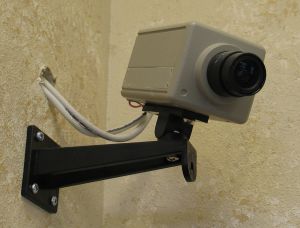 The Baltimore City Police Department is currently working out the details of a plan to begin video recording police interrogations for violent crimes. While the Baltimore City Police Department is the eigth largest in the county it is certainly not the most technologically advanced. Hundreds of police departments across the country currently record police interrogations for almost any crime including the Baltimore County Police Department. Some jurisdictions, including Washington D.C., go as far as requiring video recording for all police interrogations. In 2008, the Maryland General Assembly endorsed the use of video recorded interrogations, but did not decide to require them. As a result of the endorsement, the number of police agencies using video recording in Maryland has nearly doubled.
The Baltimore City Police Department is currently working out the details of a plan to begin video recording police interrogations for violent crimes. While the Baltimore City Police Department is the eigth largest in the county it is certainly not the most technologically advanced. Hundreds of police departments across the country currently record police interrogations for almost any crime including the Baltimore County Police Department. Some jurisdictions, including Washington D.C., go as far as requiring video recording for all police interrogations. In 2008, the Maryland General Assembly endorsed the use of video recorded interrogations, but did not decide to require them. As a result of the endorsement, the number of police agencies using video recording in Maryland has nearly doubled.